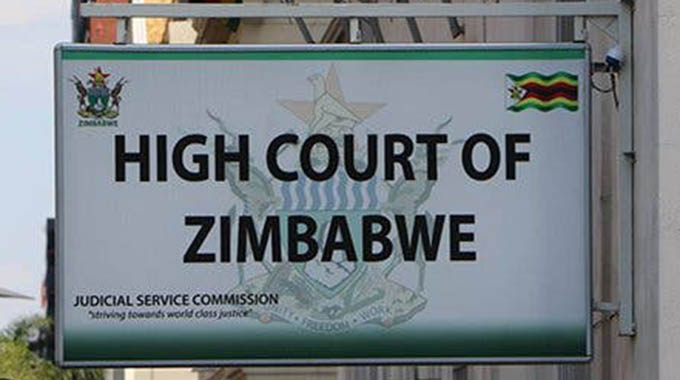GMB takes delivery of US$25m, $30bn wheat

Edgar Vhera Agriculture Specialist Writer
WHEAT farmers had by November 13 delivered 120 000 tonnes of wheat worth over US$25 million and $30 billion to the Grain Marketing Board (GMB).
GMB chief executive Mr Rockie Mutenha yesterday confirmed the deliveries saying 55 000 tonnes of the cereal were in the premium grade with the standard category accounting for the balance.
“Premium grade intake was 55 000 tonnes while standard grade accounted for 65 000 tonnes. For premium grade we are paying $268 048 plus US$220 per tonne, while the standard grade attracts $243 680 plus US$200 per tonne. To date about $5 billion and US$5,45 million has been paid to farmers,” said Mr Mutenha.
As the deliveries of wheat continue to increase, 46 percent of current deliveries are premium grade with 54 percent constituting the standard grade. In terms of payment, about 22 percent of the delivered wheat has been paid for with the remaining 78 percent still to be paid.
Mr Mutenha also revealed that GMB had requested a further $10 billion and US$8 million from Treasury, which is expected this week to pay outstanding wheat deliveries.
Meanwhile, Agricultural Advisory and Rural Development Services chief director Professor Obert Jiri disclosed that a total of 201 925 tonnes had been harvested as of November 10 from 49 159 hectares of land.
“A total of 210 925 tonnes of wheat have since been harvested as of November 10 across the country. At a preliminary average national yield estimate of 4, 78 tonnes per hectare, 374 870 tonnes can be realised,” said Prof Jiri.
Prof Jiri pointed out that combine harvesting operations were at full throttle to finish harvesting while the impact of the current rainfall activities was being assessed.
Mashonaland West province has the highest wheat harvest of 60 883 tonnes, followed by Mashonaland East and Mashonaland Central provinces at 39 276 and 37 270 tonnes respectively.
Mashonaland East has so far recorded the highest average yield of 5, 2 tonnes per hectare, followed by Manicaland and Mashonaland West provinces at 4, 7 and 4, 6 tonnes respectively.
Farmers under the Food Crop Contractors Association (FCCA) programme have so far contributed the largest share of 36 percent to the total harvested wheat, followed by CBZ and self-financed farmers at 29 and 15 percent respectively.
Meanwhile Agricultural Marketing Authority (AMA) chief executive officer Mr Clever Isaya said as wheat is a controlled product in terms of the Grain Marketing (Control of Sale of Wheat and Barley) Regulations, 2021 (Statutory Instrument 188 of 2021) there were restrictions applying on the marketing of the crop.
“Privately contracted farmers are expected to deliver their wheat to contractors, as stipulated in their agreements. Farmers under the Pfumvudza/Intwasa and the National Enhanced Agricultural Productivity Scheme (NEAPS) (mainly administered by CBZ Agro-Yield and the AFC Land and Development Ban) are expected to sell their wheat to GMB,” said Mr Isaya.
To curb side marketing mainly caused by delayed payment among others, AMA and relevant stakeholders are doing everything to tame the vice.
“We have put in place measures to curb side marketing by mandating farmers to seek clearance from AMA and Agritex if they do not have other obligations to Government or private contractors before wheat movement permits are issued.
“We are also using a farmer database, which was verified with the civil registry to plug loopholes being used by some farmers to engage in arbitrage practices,” added Mr Isaya.
FCCA chairperson Mr Graeme Murdoch disclosed that their members are over 60 percent through with wheat harvesting with the remaining 40 percent busy reaping to avert rain damage.
“Over 60 percent of our wheat has been harvested and farmers are fulfilling their offtake arrangements with contractors, though some sell to GMB especially in areas situated nearby. On a worrying note, our farmers who delivered to GMB have not yet received their payments.
Only farmers from the Presidential scheme and verified self-financing farmers have been paid. But we are told there are ongoing funding negotiations between GMB and Treasury that we hope will see our members being paid soon,” said Mr Murdoch.
The impending achievement of wheat self-sufficiency will allow the country to save of foreign currency, arrest exportation of jobs and increase economic development.
As permanent secretary in the Lands, Agriculture, Fisheries, Water and Rural Development Ministry Dr John Basera once said the best export strategy for any country is import substitution and the wheat sector has achieved this feat.








Comments